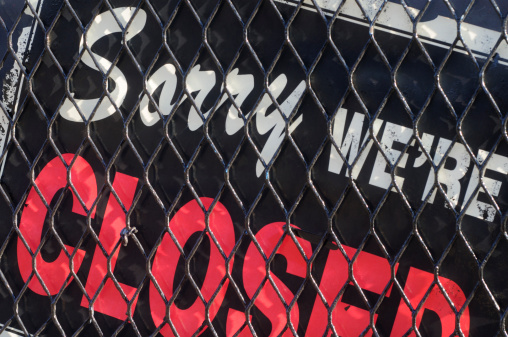We’ve seen it in too many sectors of the economy to possibly mention – both domestically and internationally. The greater the government involvement in an economic sector – the greater the ensuing economic damage. To that sector – and the broader economy.
Every additional upward ratchet of the government regulatory winch (it is rarely wound down) lessens the ability of the sector to grow – then to even exist.
For the Left, these are assaults on the economy to effect an ideological outcome – its total government-ization. They want the government running everything. ObamaCare, anyone?
The Twentieth Century showed us again and again that the results are disastrous. Facts to which the Left remains impervious in the Twenty-First.
The United States federal government has all along totally controlled Veterans Administration (VA) health care. How’s that worked?
Scandal, controversy and veterans care in the United States have gone hand-in-hand for virtually as long as there’s been a republic.
How did the government mandating home loans be made to bad risks work out?
New Study Finds (Community Reinvestment Act) CRA ‘Clearly’ Did Lead To Risky Lending
The strongest link between CRA lending and defaults took place in the runup to the (global economic) crisis – 2004 to 2006 – when banks rapidly sold CRA mortgages for securitization by Fannie Mae and Freddie Mac and Wall Street.
And then there’s farm policy. With which our government meddles to an annoying degree.
And with which many governments around the world meddle even more.
The Global Farm Market: A Crony Socialist Nightmare Mess
Perhaps the worst farm policy offender – certainly on sugar policy specifically – is Brazil.
Reality and Free Markets vs Brazilian Big Government
Brazil‘s gi-normous sugar industry…(direct) subsidies were $2.5 billion (in 2012)….
Has Brazil grown their government-sugar industry with decades worth of these multi-billion dollar subsidies and regulatory mandates? Yes….
Does Brazil cut direct checks to sugar farmers? Yes….
Does Brazil give sugar farmers loans – and then forgive and forget them? Yes….
Does Brazil give sugar preferential treatment in the country‘s pension program – essentially giving the farm sector a special break on social security taxes? Yes….
And the Big Government parade continues unabated. Brazil just announced for 2013 $480 million in new sugarcane ethanol tax breaks and $1.9 billion in…ethanol loans….
All of this Leviathan largesse has led to Brazil controlling almost 60% of global sugar trade flows.
This artificial government-subsidized dominance has led to where it always inexorably does – calamity.
Brazil’s Woes Weigh on Sugar Market
Brazil – and the continuing deterioration of its sugar and ethanol industry.
It has been battling rising inflation and increasing costs. The sale of sugar by the country‘s debt-ridden mills – which process sugar cane into sugar and biofuels – at below the cost of production to raise cash has weighed on global prices.
“This harvest, the Brazilians will continue to sell at any price and set the world price in the process.” ….
The Brazilian government – distorting the market by taking taxpayer-backed losses to raise coin.
The (Brazilian) industry suffers from overcapacity, a lack of storage and other logistics (and) mounting debts stemming from losses caused by surging production costs….
Because a government-dominated industry doesn’t adjust well to…well, anything. See: The VA, ObamaCare, Medicare, Medicaid, Social Security, the Post Office, Amtrak,…
The industry saw a sharp rise in new entrants half a decade ago, attracted by the government‘s enthusiasm toward biofuels and the promise of greater demand from cane-based ethanol – the biofuel that can either be mixed with petrol or used on its own in cars with flex-fuel engines.
Oh look – artificial inflation of a terrible idea based upon terrible government policy – governments paying to produce non-green non-energy burning food. And it is a terrible idea.
Ethanol Worse for Environment Than Pure Gasoline
There is an out availaible.
There are signs of rationalisation.
Ahead of the New York event, Oderbrecht, the Brazilian conglomerate, announced that it would close some of its mills until the government changed its fuel policy.
As in get the government out of the business.
Good advice on all things – farm and otherwise, foreign and domestic.




